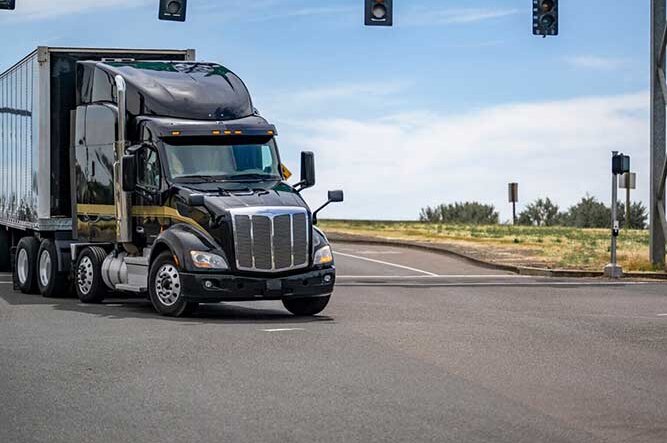Personal Conveyance Rules for Owner-Operators

Find your next load
Make more money starting now.
People who commute for work often run errands on the way home, but when you’re an owner-operator, a quick stop at the grocery store requires documentation. Anytime you drive your truck outside of work hours, you have to document “personal conveyance.”
Personal conveyance exceptions allow off-duty commercial drivers to use their vehicles for personal activities. But you still have to follow FMCSA regulations when driving on your own time.
We’ll outline the rules for personal conveyance, how to log your time for personal use, and how to avoid compliance mistakes.
Understanding personal conveyance
Personal conveyance means that a driver is using their vehicle for purposes that don’t provide any financial benefit to their trucking business (or to their employer’s business if they’re a fleet driver). Various activities can fall under personal conveyance, such as traveling to restaurants and stores while off-duty.
The primary purpose of personal conveyance is to give drivers the freedom to manage their personal needs in a way that’s convenient.
Criteria for using personal conveyance
Drivers cannot engage in any work-related activities during personal conveyance, and that includes maintenance. So if you’re off-duty, but you drive to a service center to get new tires, that’s not personal conveyance, because the FMCSA sees that as “enhancing operational readiness.”
You can claim personal conveyance if you’re off-duty and commuting to a safe rest location; however, the FMCSA says drivers must choose the closest possible option. The point of that rule is to ensure drivers aren’t driving longer than necessary when they’re tired.
Loaded vs. empty vehicles
A common misconception is that drivers can only claim personal conveyance if their trailer is empty. However, FMCSA guidelines state that a driver can claim personal conveyance with a loaded trailer, provided the driver is off-duty.
Impact on hours of service (HOS)
Using personal conveyance correctly is important for complying with hours of service (HOS) regulations. Personal conveyance is classified as off-duty time and does not count towards the FMCSA’s 14-hour work limitation.
For example:
- If you drive 13.75 hours to deliver a load and your day ends after that delivery, you could use personal conveyance time to find a hotel without violating the 14-hour limit.
You can’t use personal conveyance time to extend your day.
For example:
- If you drive 14 hours to deliver a load and have to wait in your truck until a loading bay opens, you’re still on the clock and can’t claim personal conveyance for your idling time.
Any time that’s work-related — even if you’re just sitting in your truck — is on-duty time.
Documentation and compliance
Accurate documentation is critical when using personal conveyance. Drivers must switch their duty status to “off-duty” in their electronic logging device (ELD) before using personal conveyance.
Drivers should also add comments about personal conveyance usage in ELD notes. If your personal conveyance involves purchases, keep those receipts. This documentation is key for proving compliance during roadside inspections.
Best practices for fleet owners
While owner-operators are solely responsible for personal conveyance compliance, fleet owners are responsible for their drivers’ compliance. Fleet owners should have a personal use policy that clearly defines driver expectations regarding personal conveyance and helps establish personal conveyance limitations.
Regular education and training for drivers about personal conveyance and HOS rules can reduce the likelihood of violations. Monitoring drivers’ personal conveyance logs is essential for identifying patterns of potential misuse and ensuring compliance.
Simplify recordkeeping with Truckstop Go
Maintaining good records is essential for documenting compliance and avoiding fines. With the Truckstop Go mobile app, you can manage your receipts and documents while you’re on the road. You can track your fuel costs, store receipts, and even manage invoice factoring from your mobile phone. Find out how Truckstop helps owner-operators simplify recordkeeping and find the best loads.
Get in touch, and we’ll show you how easy it is to manage your business from anywhere.
Topics:
Get helpful content delivered to your inbox.
Sign up today.
Find high-quality loads fast, get higher rates on every haul, and access tools that make your job easier at every turn.






